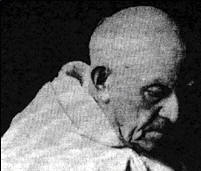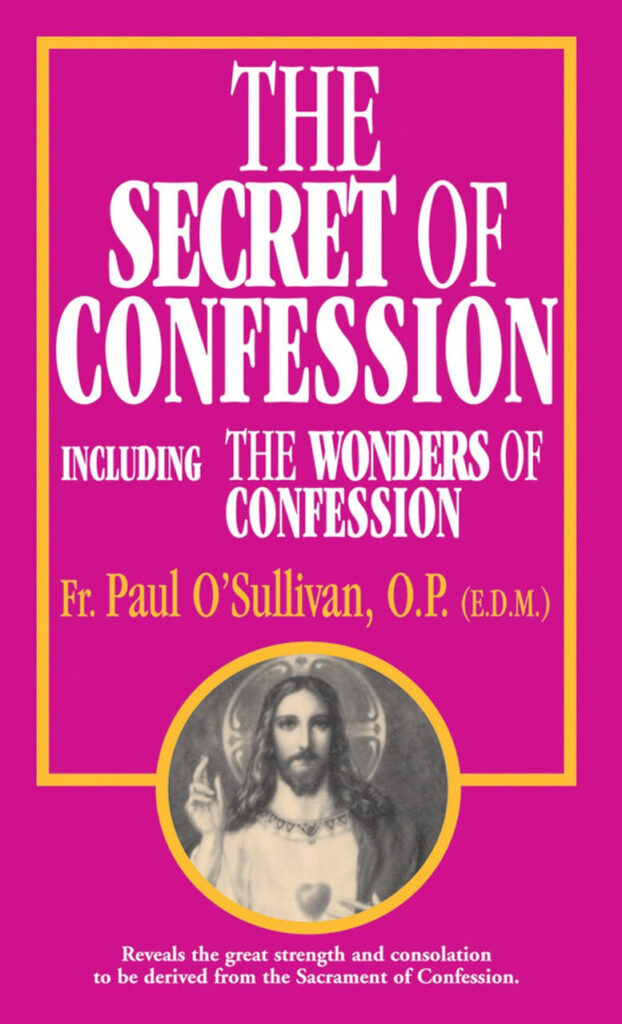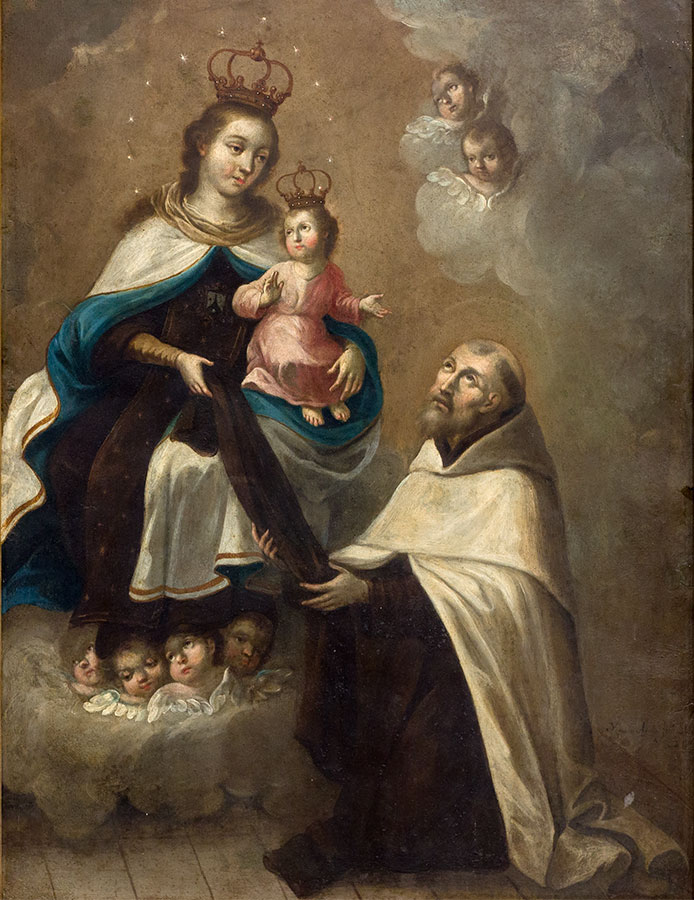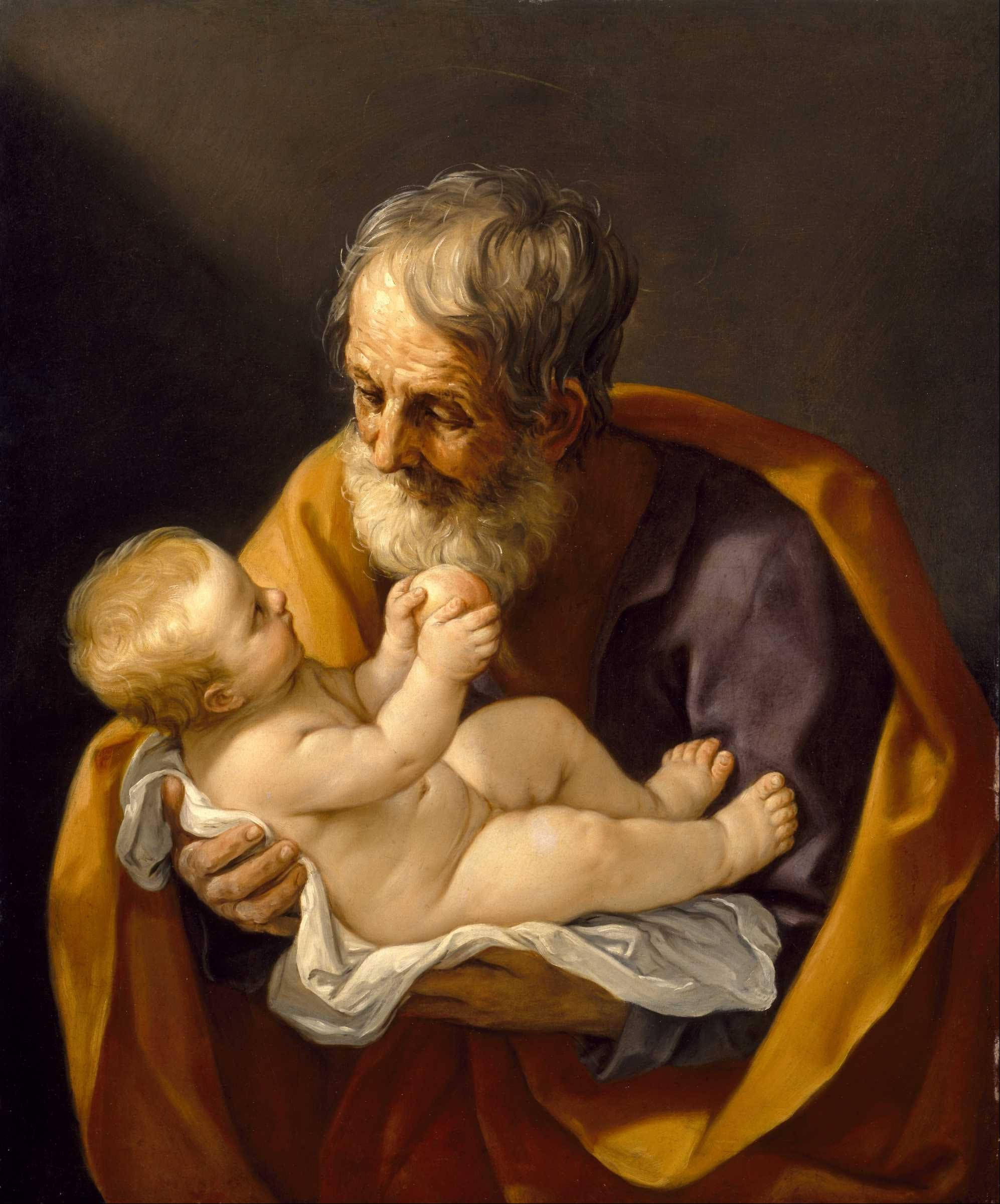The Secret of Confession seeks to teach and console the reader of the graces, tradition, and efficacy of the Sacrament of Reconciliation. In the following excerpt, Fr. Paul O’Sullivan traces the sacrament through Church history all the way to its institution by Christ.
Tradition Instituted By Christ
The Son of God came on earth to save man. From what? Clearly from sin and its consequences. All Christ did when on earth—the sublime lessons He taught, the admirable doctrine which He bequeathed us, the Sacraments He instituted, the miracles He worked, the law He promulgated, His precepts and counsels—all were destined for the great end of saving man from sin.
The 33 years Our Lord passed with us here below, His cruel sufferings, the Precious Blood He shed, and His death on Calvary had for their one great aim to purge the world of sin. Had He not achieved that end, His mission would have been a failure. It was for this object that He came. He loved sinners, lived with them and called them to Himself.
One of them, Peter, a weak and sinful man, He made the head of His Church. Paul, a fierce and relentless persecutor, He made the Apostle of the Gentiles and a “vessel of election.” Magdalen, an erring, sinful woman, the scandal of the city in which she lived, He chose for His special friend, made her a model for penitents, and eventually associated her with His Immaculate Mother. If Our Lord’s acts were not sufficient to clear away doubts on the subject, let us listen to His express declaration: “I am not come to call the just, but sinners.” (Matt. 9:13).
Now, if Christ has given to His Church the power to continue His mission for all time, and guaranteed it His fullest protection—“Behold I am with you all days, even to the consummation of the world” (Matt. 28:20), “The gates of Hell shall not prevail against it” (Matt. 16:18)—it would be, indeed, a matter of surprise if He had not given to that Church an excellent and supreme remedy against sin, since He had come on earth expressly for this end, moved thereto by infinite pity, mercy, goodness and love.
Surely no one will doubt Our Lord’s power to achieve what He so ardently desired, and still less call into question His boundless love and generosity. That omnipotent Power which drew the vast universe from nothing by a single word could find no difficulty in raising up His weak ones, forgiving them and confirming them in the path of justice. That same love and generosity which led Him to lay down His life in the midst of terrible torments would surely do all it could for those for whom He had died.
The means—the remedy Our Lord left against sin—is Confession, in which the sinner is not only pardoned of his guilt, but (mark it well, Dear Reader) receives strength and power to avoid sin for the future. He says to each penitent who goes to Him in this Sacrament what He said long ago to the sinful woman:
“Thy sins are forgiven thee, go in peace and sin no more.” Not only does He bid penitents sin no more, but He gives them the strength and the will to sin no more.
History
All Christian peoples, and at all times, have held that Confession was instituted by Christ. So certain and unshaken was this belief that the Church was never called upon to publish in regard to the doctrine of Confession any of those numerous and dogmatic declarations or carefully worded explanations and definitions which she was obliged to publish regarding many other doctrines which were controverted or denied by heretics at one time or another.
It has frequently happened in the history of the Church that doctrines not yet defined have been freely discussed by theologians of different schools of thought until the moment when the Church thinks well to intervene. Then of course all discussions cease, according to the saying of St. Augustine: “Rome has spoken, the case is closed.” [Roma locuta est; causa finita est.] But with regard to Confession, the opinion of theologians has always been unanimous. Infallible authority has never had to intervene.
What The Holy Fathers Say
St. Basil writes as follows: “Necessarily our sins must be confessed to those to whom has been committed the dispensation of the mysteries of God. It is written in the Acts of the Apostles: ‘They confessed to the Apostles, by whom also they were baptized.’” (In Rrg. Brev., q. 229, 2, 11, p. 492).
St. Ambrose: “The poison is sin, Confession is the accusation of one’s crime; the poison is iniquity, Confession is the remedy against the relapse. But art thou ashamed? This shame will avail you little at the judgment seat of God. Overcome it at once.”
St. Augustine: “Our merciful God wishes us to confess in this world that we may not be confounded in the other.” (Hom. XX).
St. John Chrysostom: “We have reached the end of Lent. We must make a full and accurate Confession of our sins.” (Hom. XXX). “To priests is given a power not given to Angels or Archangels, for Jesus says: ‘Whose sins you shall forgive, they are forgiven. Whose sins you shall retain, they are retained.’”
St. Jerome: “With us the Bishop or priest binds and looses for having heard, as is his duty, the various kinds of sin; he understands who should be bound and who should be loosed.” (Com. in Mth.).
Reading the context of these Fathers, it is abundantly clear that they are speaking of auricular Confession [i.e., Confession spoken privately to the priest, who hears it]. Thus the doctrine of Confession never raised any controversy. We find no mention of such in history, nor are documents relating to it preserved in libraries or archives, for the simple reason that no doubts ever existed regarding the Divine institution of auricular Confession.
ooo
This article is taken from a chapter in The Secret of Confession by Fr. Paul O’Sullivan which is available from TAN Books.








